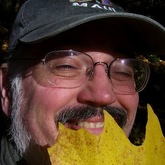
To see my choice for next week, scroll down. Then set your calendar for next monday, July 28th. Enjoy and happy writing!
The Questions…
1) What am I working on?
Until two years ago I've never written poems for others to read. Only for myself, for my own pleasure -- especially for the thrill of creativity and the insights that often come with it. But in the two years since I began organizing London Open Mic Poetry Night, I've been continuously and heavily exposed to poetry that was written not just for the poet's own benefit, but also for others to read. And that's made me realize that a certain amount of empathy with the imaginary reader is a necessary aspect of writing decent poetry, poetry that's more than just a self-indulgence. It's changed the way I write. Or, I should say, it has added another dimension to the layers I'm used to working my way through. I've been learning this partly because I've read a lot more poetry lately than I ever did before. But workshops I've attended have also helped me see my poetry through others' eyes. Now my new poems are much different than they would have been. And when I don't have a new one to work on, I just pull an old one out and rework it, adding that extra dimension.
Aside from poetry, I write the occasional "personal essay" for the blog (the links are in the sidebar, as are the links to a few of my poems). My strongest passion in life is to understand things, and a personal essay allows me to get carried away in describing some little revelation of understanding in a way that's not too difficult for a reader to follow, and while it's fresh on my mind. Personal essays are definitely fun to write. And I've received a few positive comments, so they must not be too hard on the reader.
Lately I've been looking back on my life, trying to locate the thrust of it, the reasons for its peculiar meander. How did it get me to this completely unexpected place? In the process, I've rediscovered a lot of interesting byways and situations. So I've decided that for my next project I'm going to pull some of these things out of the past and plop them down on the blog, as alive as possible, with as many fingers feeling out from them into the world and the flow of time as I can reassemble. Don't know how it'll go, but there's no harm in trying.
2) How does my work differ from others of its genre? Why do I write what I do?
I think I'm going to get carried away answering this one. Because, having gotten to know to some small degree the poets who have read at London Open Mic, I've been struck by the tremendous differences between them. I'm one of them, and I'm as different from them as they are from each other. I could try to be really objective about all this and make a Venn Diagram of the sets of all the factors that go into making poets different from each other. Each poet is more or less heavily endowed with each factor. If there were only two or three factors, there would be a very limited variation amongst poets and their poetry. But there are a huge number of factors, and each poet differs from all the others on each of them. I think all of us who've listened to the poets read have realized this. There's nearly an infinite variety.
I'll use myself as an example: On the scale of education, I have very little, especially as compared to those with an MFA, but not none at all. Ambition? Also very little. Amount of poetry read? On the scale of one to ten, three. Practice? a middling amount. Appreciation for substantive content? Nine. Reliance on inspiration vs craft? Maybe eight. Talent? Now this is a meta-set for sure, made up of sliding scales of intelligence, creativity, receptivity vs judgement, and much more. I'm okay talentwise. But we haven't even touched on the myriad of social and family factors that affect poets and their products. And things like class, actual background, treatment or mistreatment. Memorable incidents. Random memorable incidents with certain effects. And on and on. Essentially, everything in a person's life has an effect to some degree on a poet. I guess that's a prerequisite in itself. So I'm in there somewhere.
Why do I write what I do? Well, for starters, I tend to get excited when a lot of things suddenly fall into place, when I see a great expanse of reality all at once, when I get outside my tight self and into the world. I get very excited. I want to keep that vision, retain it so I can build upon it later. Yet I know that, as with a dream, as soon as I take my mind off it, it will disappear. So I try to write it down before that happens. But an intuition like that doesn't (can't) come in words so the only way to write it down is to imply it, to write around it so that in future I will be pointed in the right direction by the poem, pushed into it by the walls of the poem, and then see it again just as I did the first time. To me, this is the ultimate use of poetry. As far as I've been able to discover, poetry is the only means of recording and communicating large intuitions. Every other literary form points to things the reader already knows, simply putting them together in new combinations. But a poem, by convention, is allowed to actually say something that can't be said, but only implied.
I also write poems simply for the rush of energy that sometimes comes with putting them together. And also for the new ideas and insights and intuitions that writing them often inspires. And occasionally for fun. I've even written a poem just to have something new to read at the next open mic. And I've written my share of descriptions. There have been moments of astonishing beauty that no camera could record. So I would try but usually fail to capture them. At least they would remind me.

3) How does your writing process work?
I'm not fast with words. I talk slowly, usually, and it doesn't take much anxiety to muddle my sentence building to the point where I can hardly speak at all. But I can see pretty clearly. Which is good in terms of the imagery most poems are built upon, and very good in the sense of intuition, as I described it above, since intuition seems to be pre-verbal. But being more visual than verbal makes writing poetry a fairly slow process. Other, perhaps better, poets, for instance the one I've asked to feature next week on this blog tour, are equally adept at both tasks. And thus faster and smoother and have more of their brain power left for the art and content of the poem. But not me. I go at it in spurts and sputters. I feel like a painter slowly dabbing on bits of colour until the image comes together. At some point the flat canvas, and hopefully my poem, becomes three dimentional. And even then I will rework it a number of times. I really like to go back to a poem that's so old I've nearly forgotten it (even better, one I've completely forgotten), and see it for the first time just as someone else might, and so then rework it freshly for the new me.
4) And here is the Guest Blogger for Next Week’s Tour!
On July 28th, Kevin Heslop will respond on his blog (and probably his Facebook page as well) to the four questions above, and then hand the baton on to one or more other bloggers of his choice. Mark July 28th on your calendar!
Kevin Heslop is a young writer from London, Ontario. He attends Western but sees the process of writing and learning to write as a solitary one.
 RSS Feed
RSS Feed